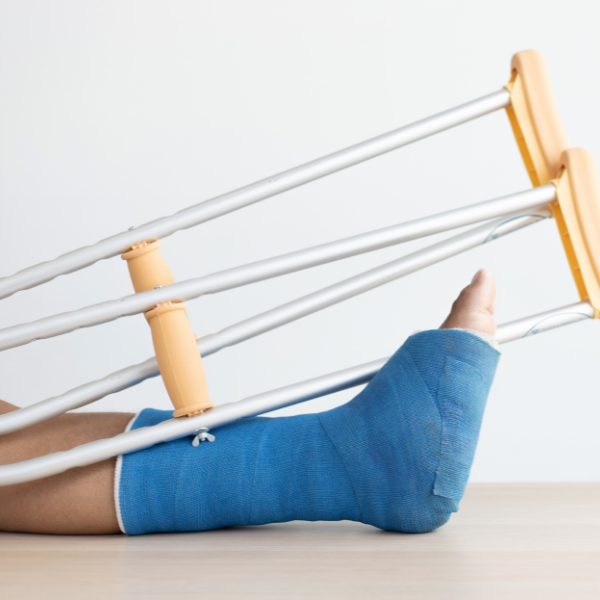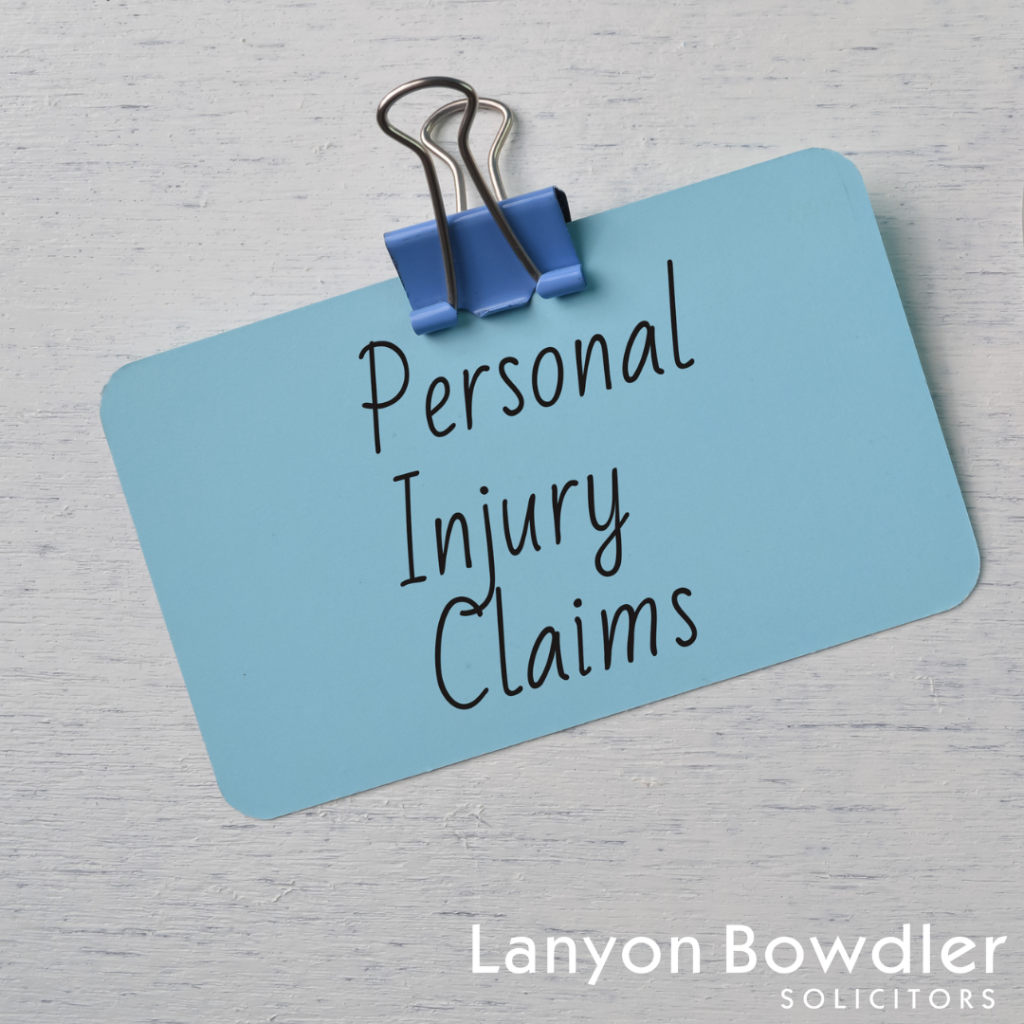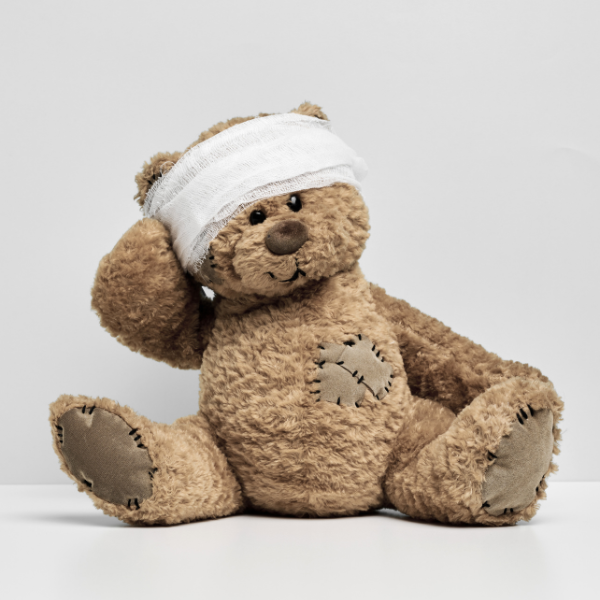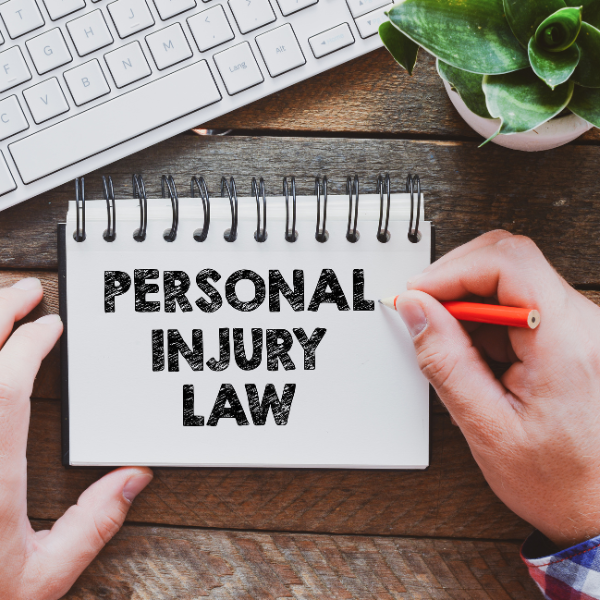If you've been the victim of a criminal injury, our team of Criminal Injury Lawyers are here to help.
Criminal Injury Solicitors & CICA Claims.
Our specialist Criminal Injury Solicitors are here to help you make a claim if you’ve been injured as a result of a criminal event.
Suffering a crime-related injury is deeply traumatic and can leave you facing unexpected physical, emotional and financial challenges. Many people don’t realise that if they have been injured after a criminal incident they could be able to make a claim with the Criminal Injuries Compensation Authority (CICA).
At Lanyon Bowdler, our specialist personal injury claims solicitors are here to guide you through every step of making a criminal injury claim. We understand how overwhelming it can feel to revisit what happened, which is why we work sensitively and efficiently to secure the compensation you deserve. This financial support can help cover medical costs, rehabilitation, lost income and provide some measure of security as you focus on rebuilding your life.
Recognised by both The Legal 500 and Chambers UK for our commitment to client care and expertise, we pride ourselves on offering clear, compassionate legal advice without unnecessary jargon. Whether you wish to speak to us over the phone, meet in person or arrange a free, no-obligation consultation, we are ready to listen and help you find the best way forward.
Key Contact
Karen Clarke is a Criminal Injury Claims specialist. She leads our team of Criminal Injury Solicitors as a partner in our firm.
She is highly experienced in making Criminal Injury Compensation Claims through the Criminal Injuries Compensation Authority (CICA).
She concentrates on complex cases, maximising pay-outs for clients who suffered a more serious impact from their injuries than they had realised.
Clients have highlighted her personal and warm approach to their cases. Karen is recognised as a Recommended Lawyer in the 2025 edition of Legal 500.
Can I make a Criminal Injury Claim?
Thankfully, the risk of being the victim of a crime has fallen steadily in the UK over recent years, falling by over 60% since its peak in 1995. But when a violent crime does occur, it is always a distressing and traumatic time for the victim.
The Criminal Injuries Compensation Authority (CICA) was established to compensate those who have suffered serious criminal injuries – even if the person responsible has not been found. The following conditions need to be met to be able to make a CICA Claim in this way:
- The incident must have taken place in England or Wales.
- The injuries must be serious enough to qualify for the minimum award of £1,000.
- The claim must be made within two years of the original incident (although there are exceptions to this).
If you are not sure whether your case meets these criteria, the best thing to do is to get in touch with our No Win No Fee Criminal Injury Solicitors to talk it through. If the crime happened abroad, you may be eligible under a scheme of the country where the crime occurred.
Our Criminal Injury Claims Expertise
At Lanyon Bowdler, we have years of experience specialising in criminal injury claims. Get in touch today and we would be more than happy to help.
The CICA compensation scheme was established to support innocent victims who have suffered serious criminal injuries, both physical and psychological.
The legal professionals here at Lanyon Bowdler can provide you with specialist assistance.
- We can help you complete the criminal injury compensation claim application form and can then correspond with the CICA on your behalf, ensuring your claim is dealt with quickly and efficiently.
- We can advise you on the progress of your claim at every stage of the process
- We can review the CICA’s initial decision to make sure you receive the correct amount of financial compensation.
- We will also ensure the CICA has all the relevant information so you are fully compensated for your injuries, as well as any loss of earnings, rehabilitation and medical costs.
We have a dedicated Court of Protection Team, who can assist if you need to set up a Personal Injury Trust in relation to any award the CICA have made, or are proposing to make.
In some circumstances the CICA will require you to have a Professional Trustee, or it may simply be that you would prefer to have a Professional Trustee, and we do also offer a Personal Trustee service for the ongoing administration of your Personal Injury Trust, should it be required.
Your Criminal Injury Claim questions answered
The CICA can award compensation ranging from £1,000 to £500,000.
The award you can receive for your criminal injury is calculated based on the CICA tariff, which accounts for both physical and psychological distress caused by the event.
Additional compensation can be awarded for Special Damages, which include all expenses and losses you have incurred as a result of your injury. This includes medical expenses, loss of earnings, and costs of adaptations to home and vehicles amongst others.
You may also claim Bereavement Payments for the loss of a loved one following a criminal injury, which is valued at £11,000.
If you have gone through the process of claiming compensation for a criminal injury with CICA and feel like your claim has been undervalued, there are ways to contest the decision.
The first step to take involves applying for a review of your case. You may then begin an appeal if you feel like CICA has undervalued your claim because of an incorrect application of the law or misunderstanding of the facts of the case.
It is important to note that you cannot appeal a CICA decision on the sole basis that you are unhappy with the amount of compensation you have been awarded. You must prove a fundamental error in the application of the law.
The time limit to apply for an appeal with CICA is 90 days from the receipt of the review decision letter. You may be able to extend this time limit for reasons such as the need for additional medical reports.
Appeals for CICA decisions are made through the First-Tier Tribunal, which is a separate, independent entity to CICA. They will only look into the CICA’s application of the law, to ensure it is correct and fair.
You may, after the application, receive a response from the CICA to which you must respond within one month. The Tribunal will review your application and the responses, and set a hearing with a Judge if they believe you have a reasonable case.
The Criminal Injury Compensation Scheme 2012 defines the term “Crime of Violence” in Annex B. This is considered any crime that involves:
- A physical attack
- Any violent act causing physical injury to a person
- Threat of immediate physical violence
- Sexual assault
- Arson
Other circumstances may bring an act to be considered a crime of violence, and some exceptions may apply to cases that would otherwise be considered violent crimes (such as injuries caused by vehicles or animals).
Some applications for Criminal Injury Compensation may be affected, or rejected entirely, on the basis of the conduct of the applicant. This is particularly important for those with previous criminal convictions which are considered unspent at the time of application. For example:
- If the applicant has received a prison sentence of up to 6 months, they will need to wait 2 years from the end of the sentence.
- If the applicant has received a Community Order, they may make an application to CICA 12 months after the end of the Order.
Other restrictions apply for different types of criminal convictions.
Unlike other types of personal injury claims, the general time limit for Criminal Injury Compensation Claims is 2 years from the date of the criminal incident, however some exceptions may apply for injuries that are only found or fully diagnosed at a later date, or if the application could not have reasonably been made earlier.
People under the age of 18 or those lacking mental capacity may begin the compensation process for 2 years after they cease to be considered within their definition.
In most cases, you must apply to the CICA within two years from the date of the incident. However, there are important exceptions. For example, children have until two years after their 18th birthday to make a claim if the crime was reported to the police while they were still underage. If you are not a minor, the CICA can extend the time limit in exceptional circumstances. If you are unsure, please reach out. We can advise you honestly about your options.
Yes. It’s a common misconception that you can only claim if someone has been caught or convicted. The Criminal Injuries Compensation Authority (CICA) assesses claims on the balance of probabilities, not beyond reasonable doubt like a criminal court. This means that even if the police were unable to make an arrest or secure a conviction, you may still be eligible to receive compensation for your injuries. What’s most important is that you reported the crime to the police as soon as you reasonably could and that you’ve co-operated fully with their investigation.
If there was a genuine reason for delay, the CICA has the discretion to accept your claim, provided you can explain the circumstances clearly.
The CICA expects victims to report incidents to the police without delay, but life is not always that straightforward. Many do not come forward immediately. In some cases, children or survivors of domestic or historic abuse may need time before feeling safe enough to speak up. If you haven’t yet reported the crime, we strongly encourage you to do so as soon as possible and seek our advice on what steps to take next.
If you have an unspent conviction, this may reduce your compensation or prevent you from receiving an award altogether. Similarly, if your own actions contributed to the incident (for example, if you provoked the attack), this could affect your entitlement. However, each case is assessed on its individual facts, and our Criminal Injury Solicitors can help you understand how your personal circumstances might impact your claim.
Yes. Many do not realise that you do not have to be physically injured to qualify for a criminal injury award. If you witnessed a violent crime or came upon the immediate aftermath and suffered a recognised psychiatric injury as a result, you may be eligible for compensation. These situations can be deeply distressing, and the CICA recognises the profound impact such events can have on mental wellbeing.
Yes, if you have lost a loved one as a result of a violent crime, you may be able to claim a bereavement award, funeral expenses, and in some cases, dependency payments. Close relatives, dependants, and those who have paid for funeral costs can often access support through the CICA scheme. We understand how devastating such losses are, and we are here to guide families through every step of the process with care and compassion.
In addition to the basic tariff for your physical or psychological injury, the CICA may award compensation for loss of earnings if your injuries stopped you working for more than 28 weeks, and for certain special expenses such as medical treatment not available on the NHS, home adaptations, or necessary care costs. We will help you gather the right evidence to demonstrate these losses clearly and maximise your claim.
If you suffered more than one injury, the CICA does not simply add up each amount. Instead, it applies a specific formula: you receive 100% of the tariff for the most serious injury, 30% for the second most serious, and 15% for the third. Injuries beyond the top three are not usually compensated separately, but they are considered in the overall assessment. Our experienced team can explain how this may apply in your situation.
No, applying for compensation is completely separate from the criminal trial process. The CICA makes its own decision based on available evidence and does not interfere with any prosecution or defence in court. However, any evidence given during the criminal case may help support your claim, so it’s important to keep us updated on its progress.
No. CICA claims are handled administratively, so you will not usually have to attend a court hearing. In rare cases, if you appeal a decision to a tribunal, you may be asked to attend, but we will be by your side to support and represent you fully.
Yes. The CICA scheme encourages acts of bravery. If you were injured while intervening to prevent a crime or protect someone else, you may be entitled to an award. These claims often need clear evidence, and we can help you present your case to show that your actions were reasonable and deserving of recognition.
Straightforward claims with clear evidence may be resolved within six to twelve months. More complex cases, especially those involving serious injuries or disputed facts, can take longer. We understand how important timely support is, and we will do everything we can to progress your claim without unnecessary delays, keeping you updated at each stage.
Yes, survivors of domestic violence or historic abuse are eligible to apply under the CICA scheme. Many feel understandably nervous about reporting abuse, especially if it happened years ago, but the scheme recognises the profound impact such crimes have. We can offer sensitive, confidential advice to help you navigate reporting requirements and ensure your voice is heard.
What our clients say.
Recent changes to the Criminal Injuries Compensation Scheme
In 2023, the government reviewed the 2022 and 2023 consultation regarding the Criminal Injuries Compensation Scheme, but chose not to make major changes to the main rules. This means the two-year time limit, eligibility requirements, and rules about unspent convictions stay the same for now. However, the way the scheme handles late applications has been updated slightly, with clearer guidance on when claims made after the deadline can still be accepted in exceptional circumstances.
If you are unsure how this affects you, our team can explain the current rules and help make sure your claim is as strong as possible.
Contact Lanyon Bowdler’s Criminal Injury Solicitors
If you are looking to claim compensation for a criminal injury, contact Lanyon Bowdler today.
Our personal injury lawyers are national leaders in this area of law, as highlighted by our consistent presence in the Legal 500 and Chambers UK recommendations.
We often assist claimants through the process of getting compensation for their injury on a No Win No Fee basis, meaning you run no financial risk when you pursue compensation with us.
Give us a call or complete our online enquiry form, to see how we can help. Lanyon Bowdler has offices in Shrewsbury, Bromyard, Conwy, Hereford, Ludlow, Oswestry, and Telford, so we are able to act for clients all over Shropshire, Herefordshire, Mid and North Wales and across the Midlands. We are the leading firm for Criminal Injury Claims in Birmingham, Wolverhampton, and Worcester.
Remember: If you have suffered because of a violent crime it is important that you report it to the Police as soon as possible, and co-operate with them in order to bring the offender to justice.
Meet the team.
Case studies.
Latest knowledge.
Our awards and accolades.
Get in touch.
"*" indicates required fields

 Back
Back






















 Case Study
Case Study







 Blog
Blog




 Podcast
Podcast















